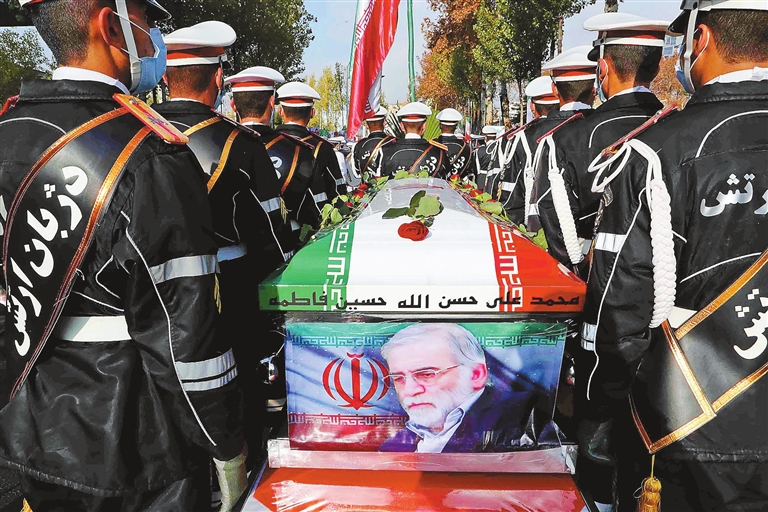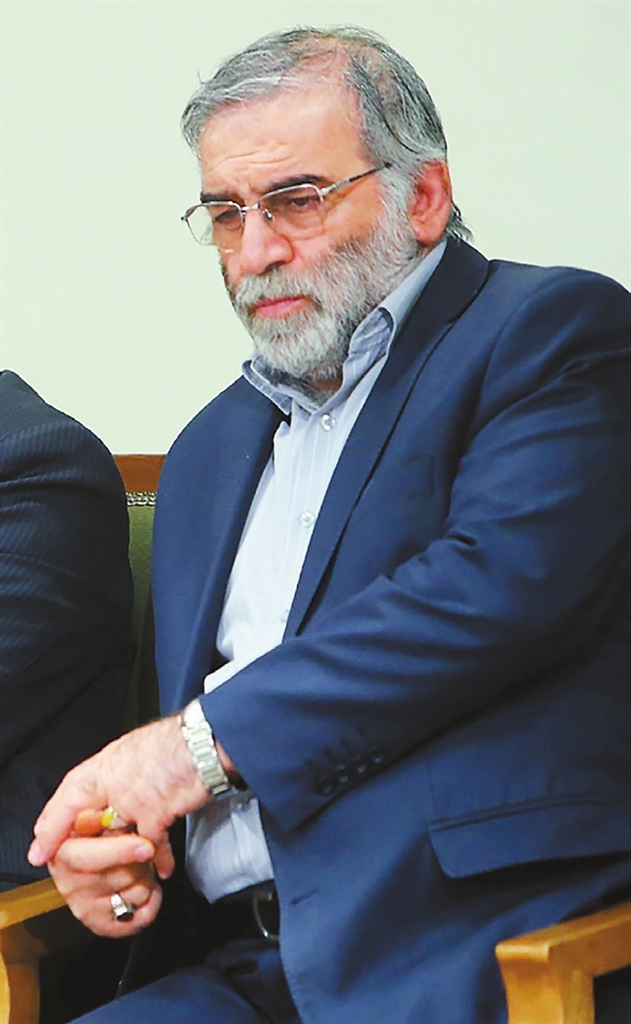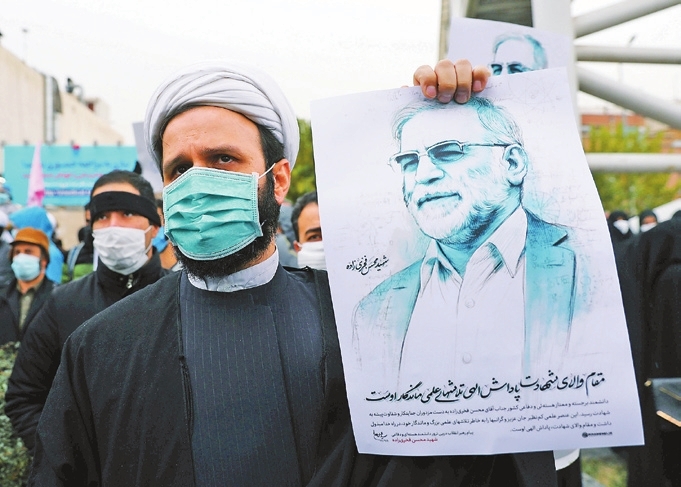


THE assassination of Iranian top nuclear physicist Mohsen Fakhrizadeh has raised questions about how and when Iran would respond, as well as concerns over the Mideast uncertainty, but an immediate escalation is unlikely according to several analysts. Fakhrizadeh died of severe injuries in hospital Friday afternoon, after an ambush on his vehicle in Absard village, 60 km northeast of Tehran. According to the details provided by Iran’s Minister of Defense Amir Hatami, the attackers first shot at Fakhrizadeh’s vehicle, and then detonated a Nissan car loaded with explosives. The victim had high proficiency in different scientific fields and acted as an adviser to Hatami and the head of the ministry’s Research and Innovation Organization, leading Iran’s defense against nuclear or biological threats. Regional uncertainty grows Most official reactions to the assassination from Iran have stressed the terrorist nature of the crime, and pointed to Israeli intelligence as the main suspect. Iranian Foreign Minister Mohammad Javad Zarif was the first to mention “serious indications of Israeli role” in the attack on social media. He also called on the international community to “end double standards” and condemn the crime as an “act of state terror.” Mohammad Baqeri, chief of staff of Iran’s Armed Forces, also accused “terrorists affiliated with ... Zionist regime (of Israel),” and warned of “a severe revenge.” Israel has not officially commented on Fakhrizadeh’s killing so far. Nabil Shaath, adviser to Palestinian President Mahmoud Abbass for international relations, said it might be right for Iran to accuse Israel of committing this heinous crime, as “Israel has been accustomed over the past years to carrying out assassinations against its enemies, not just Iran.” However, Iran’s Supreme Leader Ayatollah Ali Khamenei seemed to be more cautious Saturday in his message, not pointing to any suspect, but saying both the perpetrators and the commanders of the crime must “definitely be punished.” Iran’s President Hassan Rouhani clarified in his statement Saturday that the response will be given in “an appropriate time” in order “not to fall in the trap of Zionist (Israeli) conspiracies.” Rouhani’s remarks echoed with the concerns of analysts that the assassination seeks to bring about an escalation and frustrate any attempt to reopen diplomatic ways between Iran and the United States after a new administration takes over in Washington. Shaath said that the main motive behind the killing is to provoke tensions between Iran and its neighboring Arabic states, especially Saudi Arabia, in addition to shuffling the cards in the Middle East, facing the imminent power transition in the United States. Mohammed Mohsen Abo el-Nour, an Egyptian researcher on Iranian affairs and chairman of the Arab Forum for Analyzing Iranian Policies, also said Iran will not resort to an escalation with Israel before Joe Biden assumes office, bearing in mind the complex regional conditions, including the movement of U.S. military formations towards the Gulf, the Israeli mobilization, and the new Israeli positioning in some Gulf countries near Iran. Bilgehan Alagoz, academic and expert on Iran from Marmara University in Turkey, said the timing of the killing is significant as it happened just after the U.S. elections but before the new administration takes office. The Iranian Government will probably wait for an answer from Biden after he assumes office. However, she said, the silence in real response is generating significant public pressure in Iran. No one knows how the Iranian Government will balance its plan and the domestic pressure, but any move it makes will impact the entire region. Domestic pressure Obviously, maintaining “strategic patience” is not easy. On the evening of the killing, groups of students usually supportive of government policies urged a strong reaction in demonstrations in Tehran and the holy cities of Mashhad and Qom. On Sunday, a large majority in Iran’s Parliament ratified a motion containing a combination of suggestions on Iran’s withdrawal from the Non-Proliferation Treaty, a limitation of the inspections of Iran’s nuclear activities by the International Atomic Energy Agency (IAEA), and a mandate to increase uranium enrichment in Iran, Tasnim News Agency reported. Speaker Mohammad Baqer Qalibaf said in his speech that the killing of Fakhrizadeh “will open a new window on the progress of the country,” and also warned that only a strong reaction may deter Iran’s enemies from possible “mistakes” in the future. “The parliament will move to significantly expand the nuclear program and dramatically reduce the IAEA presence in Iran,” Seyed Mohammad Marandi, a professor at the University of Tehran, said on social media. Kayhan Daily, whose editor-in-chief is directly appointed by Iran’s top leader, published Sunday an editorial by expert on Middle East affairs Saadollah Zeraei, proposing a “smart and precise but devastating” attack on Israel. Such an attack, the author wrote, should only be carried out if Iran’s Supreme National Security Council is “convinced” that Israel is responsible for Fakhrizadeh’s assassination. In fact, a major matter of concern in Tehran aside from an adequate response, is the need to remedy the “security breaches” exposed by the killing. “The authorities must answer about the source of this breach and infiltration,” said Hossein Dehqan, military adviser to Iran’s top leader, in a statement Friday. Abo el-Nour said the assassination has revealed an Iranian intelligence loophole and a security exposure at a high level. “The perpetrators managed to assassinate Fakhrizadeh and six other people, revealing the inadequacy of the Iranian security measures,” he elaborated, adding in the last three years, Israel was able to carry out operations in Iran, which explains the extent of the Iranian intelligence’s shortcoming. He compared this killing to the assassination of Qasem Soleimani, a senior Iranian commander, in January, concluding “Iran will not respond to the assassination before January, especially with the exposed inadequacy of its security apparatus.” (Xinhua) | 
